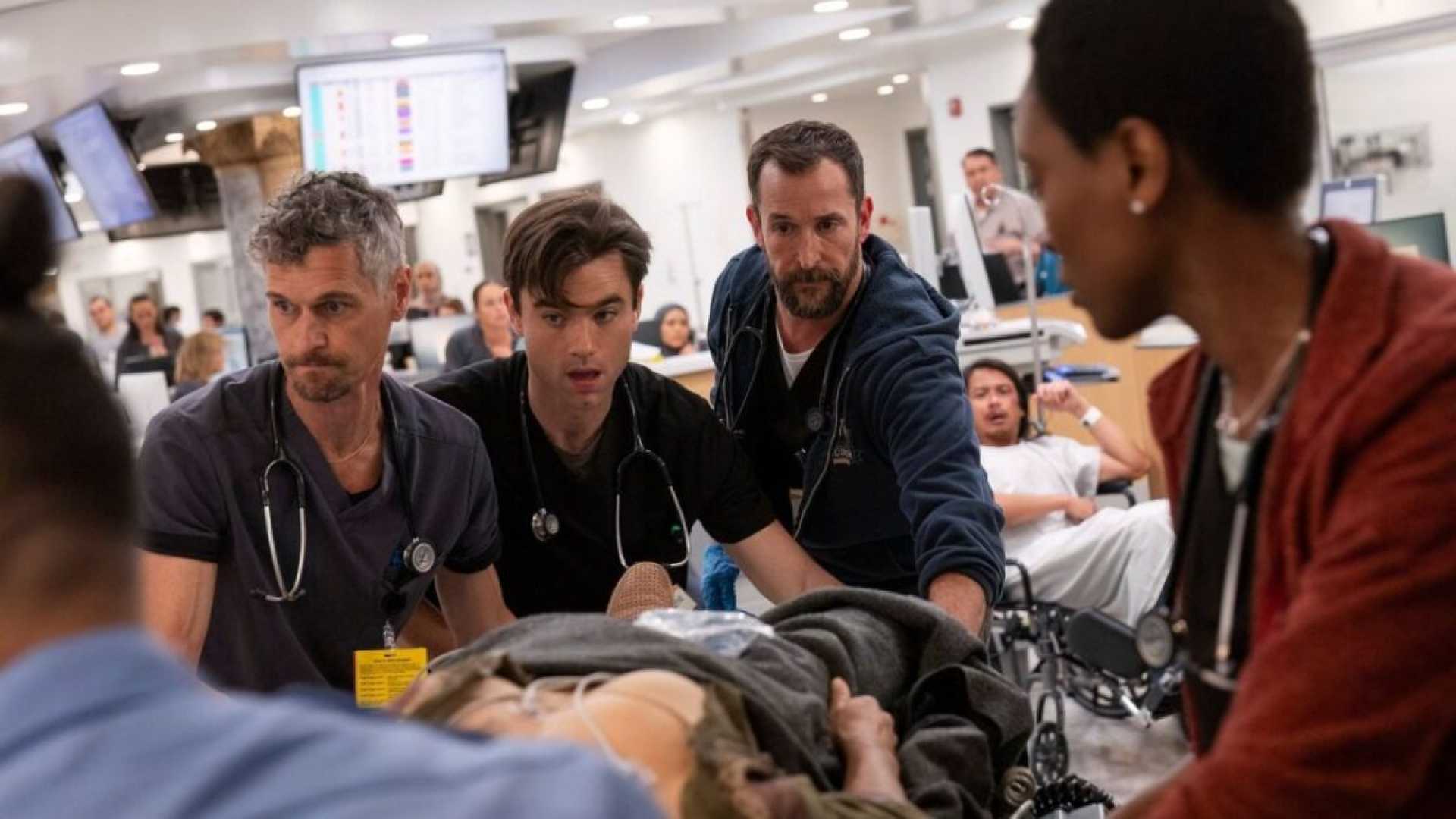Entertainment
Examining ‘The Pitt’s’ Realism Amid Mass Shooting Drama

San Francisco, CA — In a gripping episode of Max‘s hospital drama ‘The Pitt,’ audiences witnessed the emotional turmoil of emergency room staff responding to a mass shooting at a music festival. The episode highlights the challenges faced by healthcare professionals in high-stress scenarios, making it a point of discussion among medical experts.
In Episode 13, aired recently, Dr. Robby, portrayed by Noah Wyle, struggled with the harsh realities of triaging victims as the emergency department faced an influx of gunshot wounds. The episode’s intense portrayal of a ‘code triage’ protocol, akin to real-life situations, has garnered both praise and scrutiny from professionals in the medical field.
Dr. Christopher Colwell, chief of emergency medicine at Zuckerberg San Francisco General Hospital, viewed the episode and offered insights on its authenticity. “I think they did a remarkable job. The portrayal of the emotional issues faced by the staff was striking and reflective of what occurs in real situations,” said Colwell. He emphasized the psychological impacts that arise from such tragedies, recalling his own experiences with mass shootings, including Columbine and Aurora.
As the episode unfolded, Dr. Robby faced a dilemma in providing care to Leah, a victim he had a personal connection with. “You cannot give the best care when you involuntarily become emotionally invested in a patient,” Colwell noted. He explained the concept of ‘special care,’ where high-profile individuals might receive different levels of attention, sometimes at the expense of overall patient care.
Colwell acknowledged that while the episode depicted a limited number of attending physicians during a mass casualty scenario, the reality would likely involve more resources and personnel to handle such an emergency effectively. “Typically, only about 10 percent of patients require immediate surgical intervention during a mass shooting. These deviations from reality were included for dramatic effect,” he added.
Throughout the episode, the actions of Dr. Robby illustrated a critical debate in emergency medicine: the balance between individual care and the greater good. Colwell commented on the ethical complexities in emergencies, pointing out that decisions often hinge on maximizing the number of lives saved.
On the subject of treatment procedures, Colwell critiqued several dramatic medical interventions displayed. He highlighted the improbability of some techniques, such as intubating unstable patients while dealing with multiple casualties. “In a true mass casualty incident, if a patient cannot breathe independently, they are often deemed non-salvageable,” he explained.
Moreover, he conveyed skepticism regarding the show’s depiction of hospital administrators. “The portrayal of the incident commander was accurate. They need to focus on resource management rather than being involved in direct patient care, which was effectively demonstrated in the episode,” Colwell stated.
The insight garnered from Colwell reflects the broader implications of ‘The Pitt’ as it navigates sensitive topics, aiming to resonate with its audience while portraying realistic medical scenarios. “The power of these stories lies not only in their entertainment value but also in their capacity to spark meaningful conversations about trauma and recovery in the health care context,” he concluded.
As ‘The Pitt’ continues to evolve, audiences can expect season two, confirmed for January 2026, to explore more complex storylines that encapsulate the pressures within emergency medicine. New episodes air every Thursday, maintaining a strong viewership and sparking ongoing discussions about realism in medical dramas.












